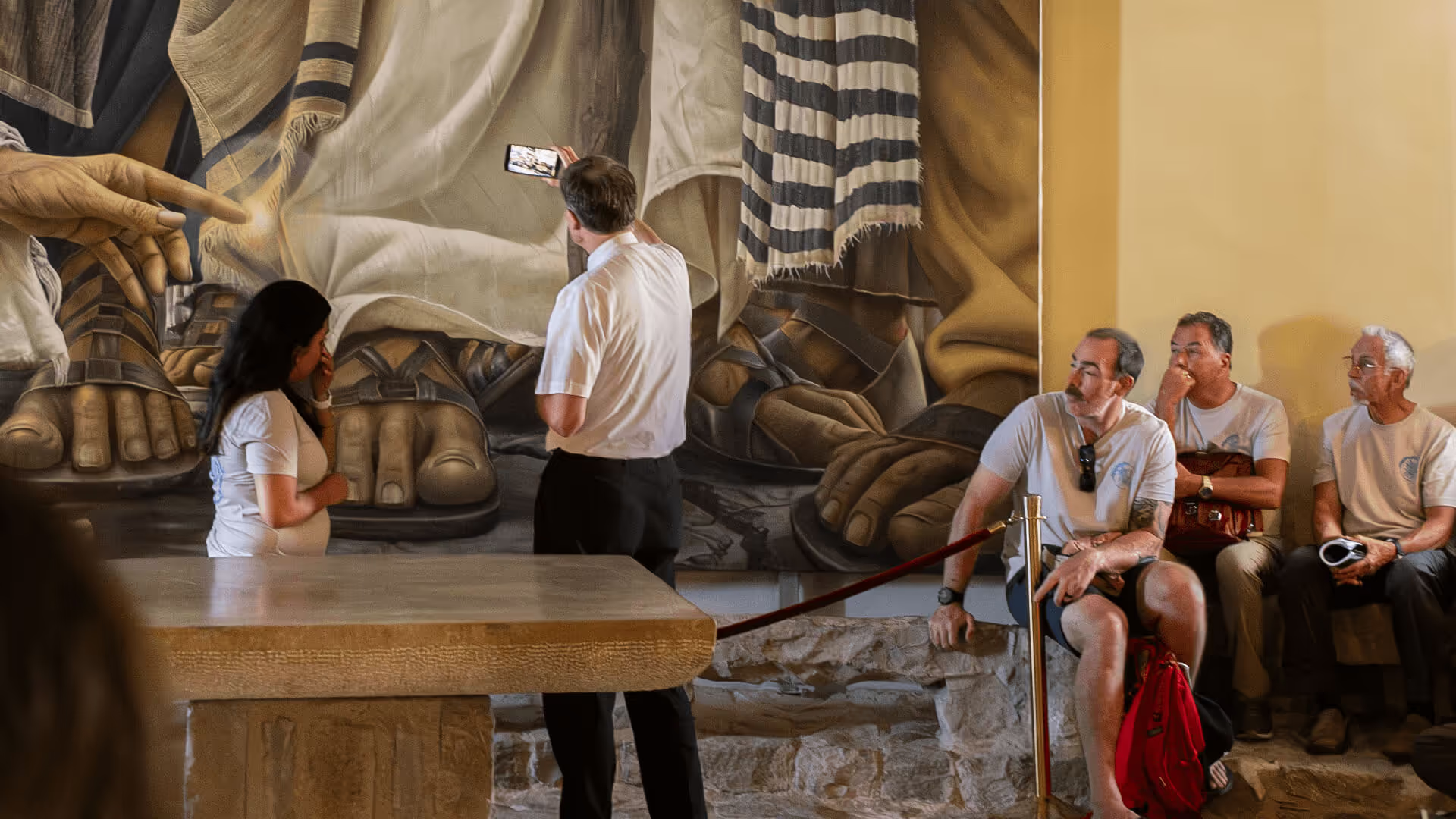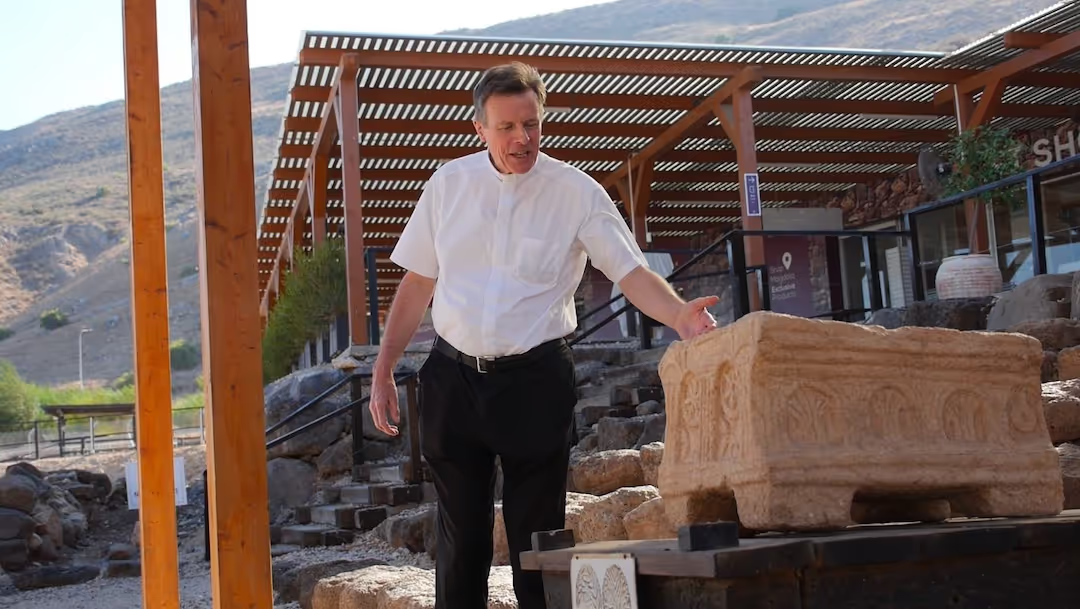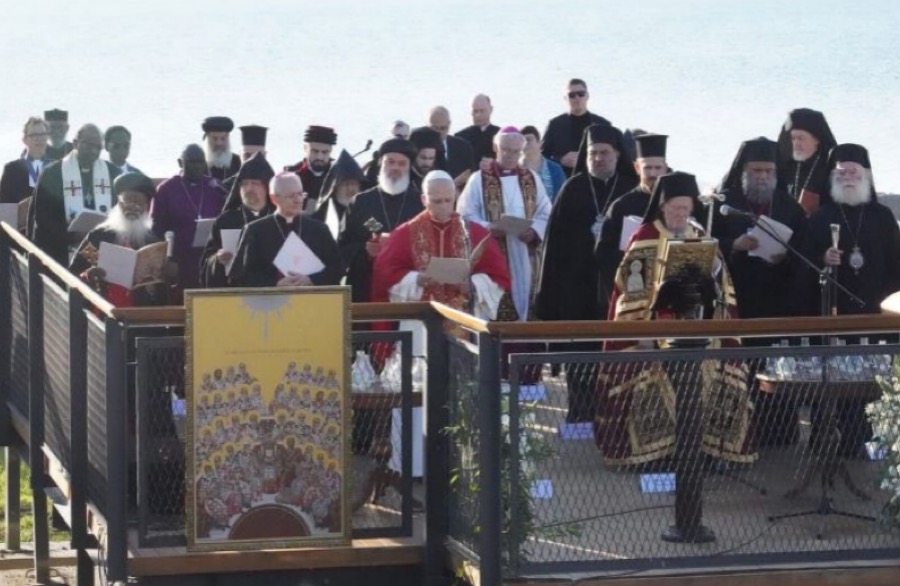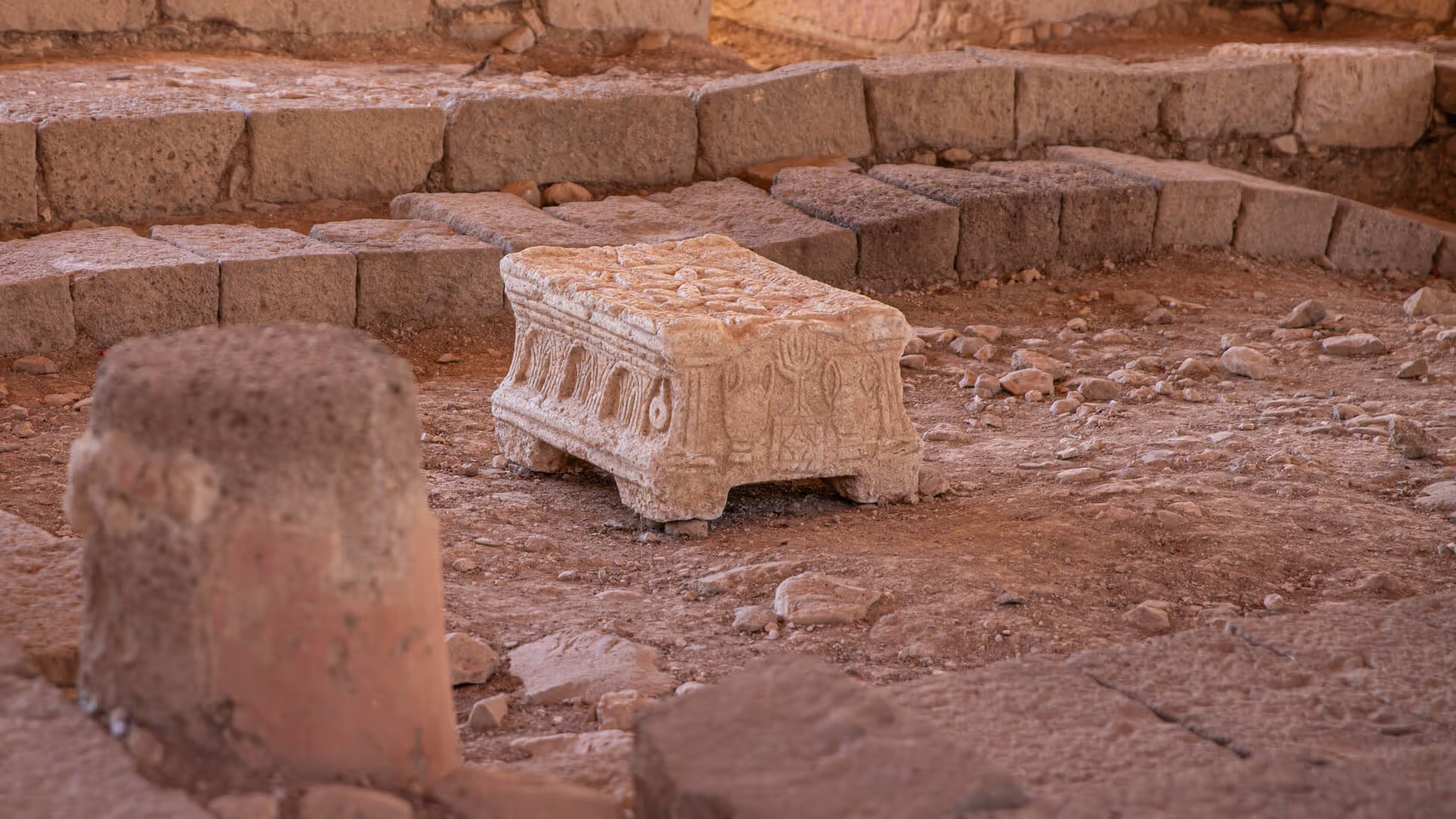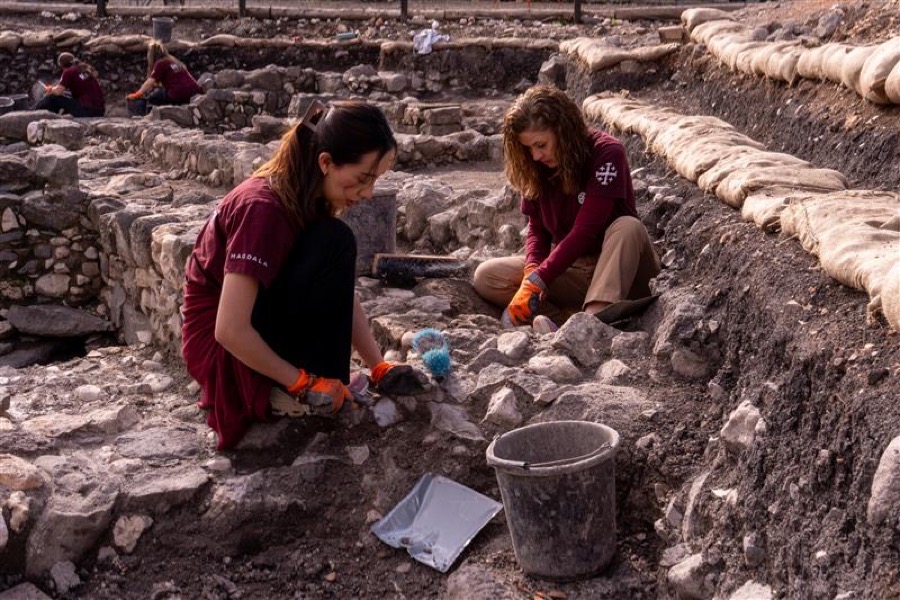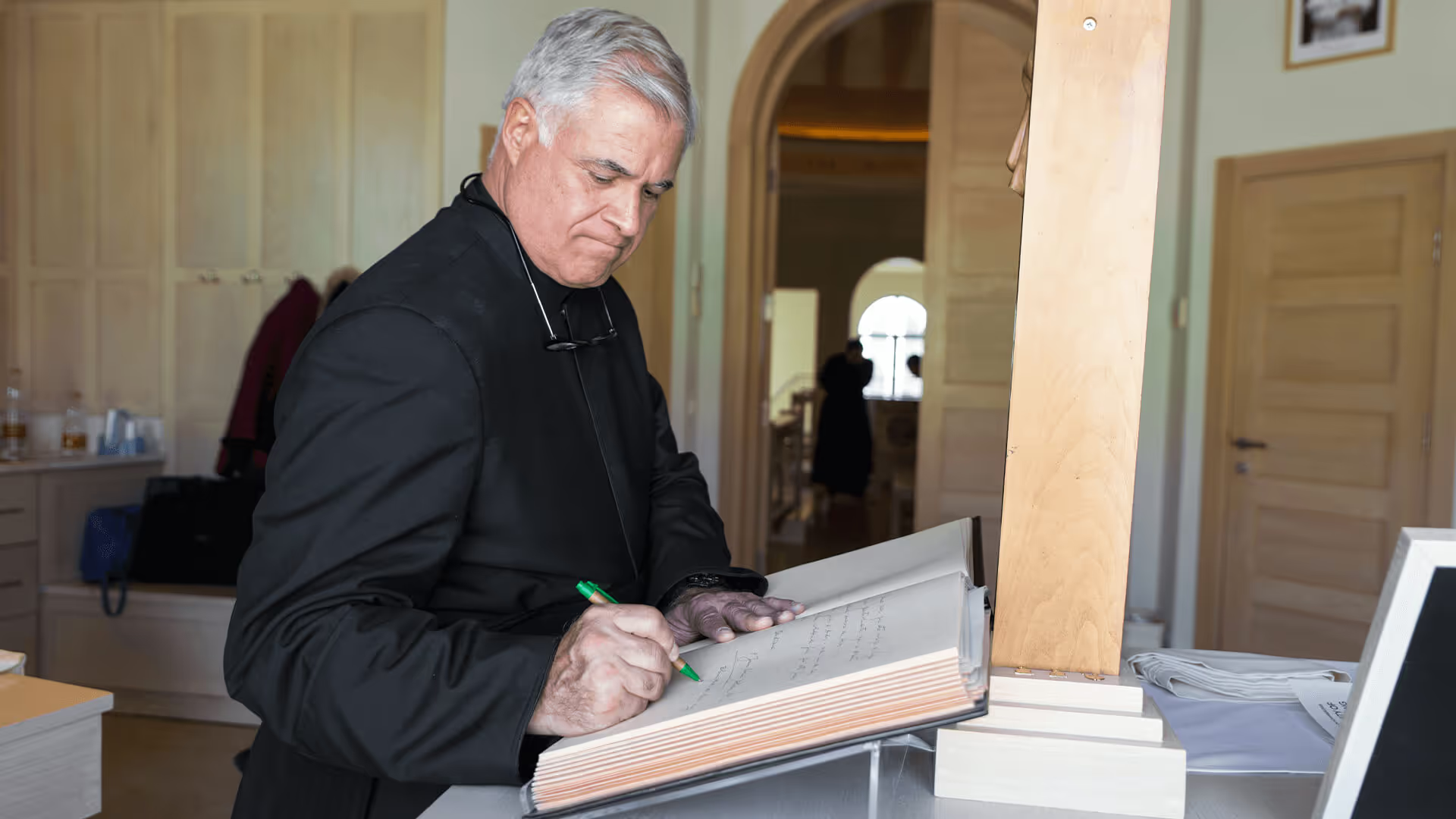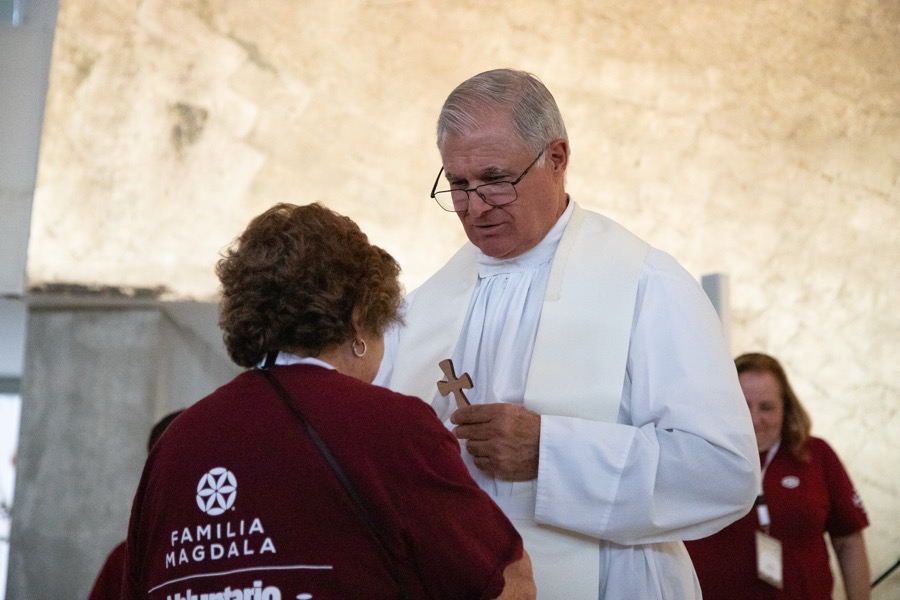Thankfully these words are appearing more frequently this week in conversations across the Holy Land and worldwide:
ceasefire, truce, peace agreement, reconciliation process, flourishing mutual relationships, committed allies, and one family. On an interfaith WhatsApp chat the following message just appeared in answer to a Jewish person inquiring how they could provide help to Gaza families in need:
“There was a news article recently about an organization that arranges "villages" for orphans in Gaza, including meals and schooling. Initiated by an American doctor of Palestinian origin, funded mostly by Israelis.”
Hopefully this pattern could characterize all the people suffering present or recent conflicts.
The following thoughts were prompted by the liturgical texts over a week ago, juxtaposing Jonah who didn’t want to follow God’s orders to be a blessing for his enemies and the Our Father prayer against the backdrop of widespread regional conflicts. Now we are relieved here in the Holy Land to know the local parties have stopped their war. A hostage and prisoner exchange has brought relief to many families and people at large, even a worldwide sigh of relief, and potentially an encouragement to hope for communities in other conflicts.
The easier procedure is the authoritarian command, announcing, proclaiming, and imposing intellectual principles for good behavior. A harder task is to build a relationship that effectively helps to move the stubborn person to carry out the good and to interiorly accept the principles of truth and justice, essential peace prerequisites. Sincerity, truthfulness, and genuine goodness in favor of the person are key experienced components that allow the other to truly trust and grow as a person in a difficult relationship and even to embrace the living invisible God who loves us immeasurably. These relationships need time and space and personal connections, and so the improvement of humanity happens in small circles and doesn’t scale easily. It takes generations.
It’s that small monastery in the middle of a desolate remote wasteland, where a small number of men or women persevered for years building community life and prayer, which then reached the hearts of the surrounding residents, near and far. The monks or nuns won their respect because perseverance in building community is one of the most difficult and marvelous accomplishments of redeemed humanity, a foretaste of heavenly society.
Faithful relationships take decades and generations to forge but are always fragile and can suddenly suffer deep wounds, dysfunction, and disappearance. We sense why the family and the small religious community are such a precious resource in constituting a strong and healthy society. To favor and strengthen the family and small religious communities ranks among the best investments of energy to transform our world.
The Lord’s Prayer is first-rate spiritual gymnastics for accomplishing this purpose. Healthy frequent repetition of this prayer waters the interior soil of each prayerful person and community like the frequent showers spreading across the green fields of Ireland yielding lush meadows and sundry harvest bounty.
The Our Father prayer is the work of therapeutic genius for our souls and all our relationships. The prayer which has no me or I but only us and we and you! When prayed with depth and awareness, it reveals itself as both demanding and spiritually transformative, a genuine therapy for divisiveness and a school to overcome our social atomization.
In school, I remember when we learned to parse a text, breaking it down to its component elements and distinguishing subject, verb, and object, nuanced by adjectives, adverbs, and subordinate clauses, etc. This was particularly necessary for learning Latin, given the declensions and conjugations which expressed precisely these diversified syntactic elements.
Let’s attempt to apply this to one aspect of the Our Father. This syntactic analysis is particularly revealed in the Our Father as the first person is only used in the plural form: us and we, never in the singular: I and me. The word syntax itself derives from the Greek σύνταξις meaning arrangement or order together. The Our Father is not a solitary prayer even when we pray it alone in the depths of our soul’s intimacy with God. We are all together from many different points of consideration. Let’s take a look: of the 54 words in the English Our Father, 12 are inclusive and don’t admit exclusion of fellow human beings.
Thy, our and us
Our Father
Thy name
Thy kingdom
Thy will
Give us our bread
Forgive us our …
As we forgive
against us
Lead us not
But deliver us
Subjects objects verbs
- 3x Thy
- 1x art = second person singular
- 3x our
- 5x us
- 1x we
First person plural (we, us, our): 9 total
Second person (Thy, Thine): 4 total.
Notice:
The total absence of me & I
The total inclusion of everyone, including the hungry, sinners, and my enemies
The only time we is used is for forgiving!
All the human family!
All those in need and all those created to worship God forever and to enjoy the blessings of his kingdom
We are all in this prayer together.
A prayer we say so often without thinking of its implications, but which has the potential and strengths to help remedy our worldwide malaise. Dramatic stories like Prophet Jonah turn our thinking around and transform us and interpret our own costly experiences during which we have grown immensely. Gospel stories such as Prodigal Son, Good Samaritan, Rich man and Lazarus, Talents, etc. are outside us but shed excellent light on our direct experiences.
Let’s stop choosing who deserves love!
Nobody is outside the bounds of love. Can we put boundaries around whom we should love? Are the others not inside the boundaries? Can we put boundaries around those of us who can serve together, in love, the needs of others, or can we do that with everybody? If God sent you to love someone you hate, would you go? Jonah wanted boundaries around God’s love. Jesus flipped those boundaries! For Jesus the Samaritan is the hero. No one is outside the reach of God’s mercy. Loving inconvenient people. Who are we avoiding?
Go and do the same! Love the unlovable. Let’s stop choosing who deserves love!
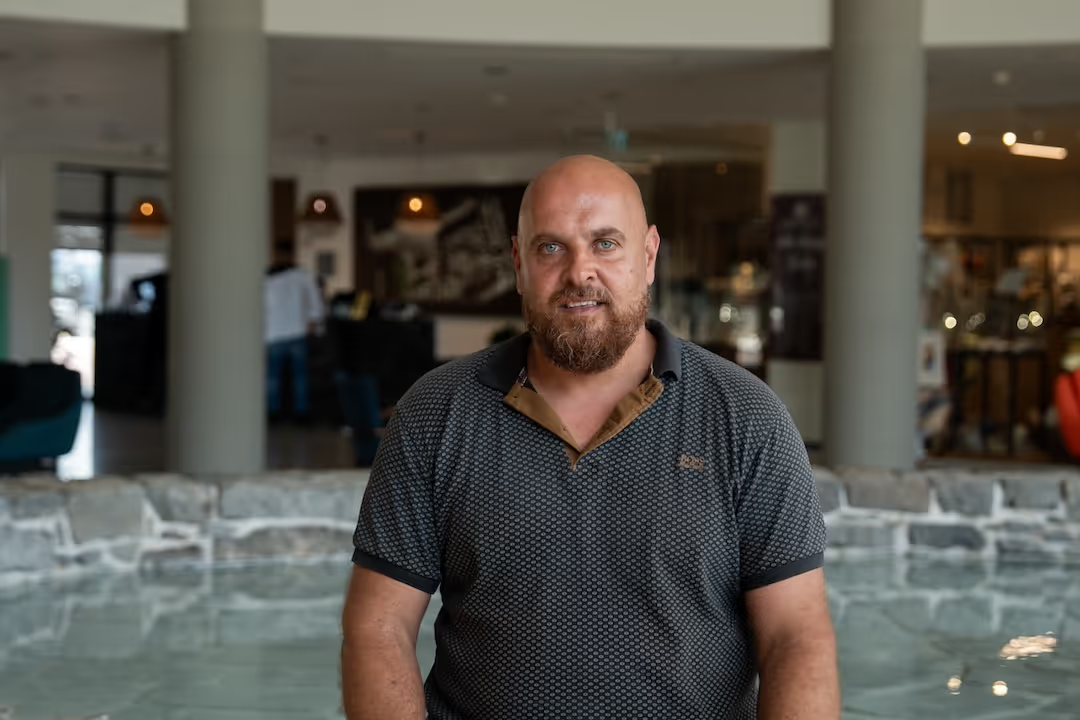
Abu Carlos, Nasser Ghnadry - Maintenance Manager
Nasser was born in Rameh, a town in Galilee as the youngest of three boys and two girls. His mother was a grade schoolteacher and his father worked in construction. Nasser avoided working in construction with his dad but after he graduated in Business Administration from the COLMAN College of Management, he found himself involved with construction and loved the practical side of it.
When he was twelve years old his mother passed away from cancer. This was a hard blow. Nasser was raised in a Christian family as his mother was Catholic, and his father is an Orthodox Christian who sent him to Catholic schools. Nasser married Salma in 2008 and is now blessed to be the father of two girls and a boy named Carlos. As is customary, when parents have a boy, their name changes and Nasser is now Abu Carlos, “father of Carlos”, and is known as such by all his extended family and friends. Similarly, Salma is now Umm Carlos, “mother of Carlos”! I love this custom! It speaks volumes about appreciation and respect for parental status and strengthens family culture.
In 2016, one of Magdala’s staff called him to consider coming to work here in the construction. Back then, only Duc in Altum was finished. Nasser was involved directly in finishing them with the plumbers and painters, plasterers, and carpenters. Few people know these buildings like Nasser who is now head of maintenance. In teamwork with the construction people, he learned all the systems and their processes directly. Magdala sent him to the Haifa Mishlav College for a Maintenance Management license one year program. After courses two days weekly, he earned his Maintenance Manager License. Similarly, he also completed a course for swimming pool maintenance and did the exams to earn that management license from the Ministry of Health.
Nasser loves Magdala!
“From the beginning, Magdala feels like a family. You feel a part of the place, and I built a lot here and thousands of details are so familiar to me. Not only do I know how they work, I know their exact history. Magdala keeps you growing humanly, professionally, and, if you want, spiritually.”
Discover more articles from this category
